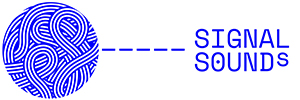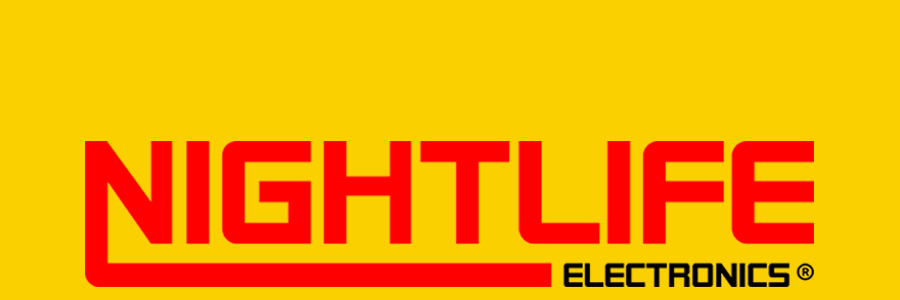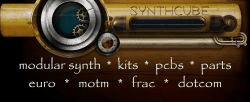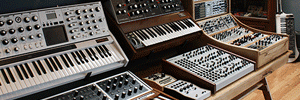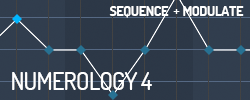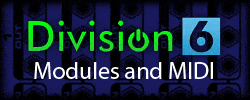
Showing posts with label BBC. Show all posts
Showing posts with label BBC. Show all posts
Thursday, March 27, 2014
Vintage Radiophonic Workshop Influence on Modern MacBeth
via Ken MacBeth on Facebook
"I was just looking at two old BBC Radiophonic Workshop LPs that I have here....this type of music was introduced to me in 1st year Secondary- I think that I was 12 or 13 at the time...my new synths have embelishments to them that are a tribute to this time in my life!"
Saturday, February 22, 2014
Making the Most of the Micro (7): Sounds Interesting
Published on Sep 10, 2012 Jesús Zafra·89 videos
BBC Micro Computer. Spotted an Alpha Syntauri in the intro as well.
"Episode 7 (Of 10). Broadcasted in BBC-2, 21 February 1983
Making the Most of the Micro was a TV series broadcast in 1983 as part of the BBC's Computer Literacy Project. It followed the earlier series The Computer Programme. Unlike its predecessor, Making the Most of the Micro delved somewhat deeper into the technicalities and uses that microcomputers could be put to, once again mainly using the BBC Micro in the studio for demonstration purposes. The series was followed by Micro Live.
List of Episodes:
--------------------------------------------------------------------------
1. The Versatile Machine (10 January 1983)
2. Getting Down to BASIC (17 January 1983)
3. Strings and Things (24 January 1983)
4. Introducing Graphics (31 January 1983)
5. Keeping a Record (7 February 1983)
6. Getting Down to Business (14 February 1983)
7. Sounds Interesting (21 February 1983)
8. Everything Under Control (28 February 1983)
9. Moving Pictures (7 March 1983)
10. At the End of the Line (14 March 1983)"
This one in via Ununseptium warehouse
Wednesday, February 12, 2014
HorriblerAlien2 - Hybrid Music 5000 Software on BBC Model B
Published on Mar 22, 2013 Franco Cesarelli·47 videos
"In the late 80s I amused myself with my BBC model B and the Hybrid Music 5000 software. It was an amazing program at the time. I have not had as much fun with any computer music program since. It could be persuaded to do both interesting and silly things."
via Wikipedia
"The BBC Microcomputer System, or BBC Micro, was a series of microcomputers and associated peripherals designed and built by the Acorn Computer company for the BBC Computer Literacy Project, operated by the British Broadcasting Corporation. Designed with an emphasis on education, it was notable for its ruggedness, expandability and the quality of its operating system..."
Friday, January 31, 2014
Korg All Access: Radiophonic Workshop at BBC Maida Vale, with the KingKORG, Kronos and MS-20
Published on Jan 31, 2014 Korg·426 videos
"The BBC Radiophonic Workshop, was created in 1958 to produce effects and new music, most famously producing the Dr Who soundtrack.
The original Radiophonic Workshop was based in the BBC's Maida Vale Studios in Delaware Road, London, growing outwards from the then-legendary Room 13.
Now they are back with a band of the same name , with a new album out this year and extensive touring plans, and Korg is a big part of this.
We had exclusive access to this live performance for BBC 6 MUSIC.
To learn more about these great products, head over to http://www.korg.com!"
"The BBC Radiophonic Workshop, was created in 1958 to produce effects and new music, most famously producing the Dr Who soundtrack.
The original Radiophonic Workshop was based in the BBC's Maida Vale Studios in Delaware Road, London, growing outwards from the then-legendary Room 13.
Now they are back with a band of the same name , with a new album out this year and extensive touring plans, and Korg is a big part of this.
We had exclusive access to this live performance for BBC 6 MUSIC.
To learn more about these great products, head over to http://www.korg.com!"
Sunday, October 13, 2013
A Petition to Publish Delia Derbyshire's music from the BBC Sound Archive
Sign the petition here.
"Most of electronic music pioneer Delia Derbyshire's music exists in a single copy in the archives of the BBC Radiophonic Workshop. Many dozens, if not hundreds, of pieces of her beautiful work are mouldering unheard.
Delia's music broke new ground on several fronts: technological as she pushed what was possible with the equipment of her time, rhythmical as she experimented 11- and 13-note bars, and tonal as she freed herself from the 12-tone scale and voyaged into soundscapes and pure sound. Of Delia's work, only a tiny percentage is known to the public, whereas by far the majority of it is on tape in the Archive of the BBC Radiophonic Workshop in the custody of Mark Ayres.
We petition the BBC Trust to apply pressure to the BBC so that these recordings be swiftly published on traditional audio media (CD, DVD) so that the public, and in particular the British public who paid for it to be produced, be able to learn from and develop this woman's amazing musical visionary style.
The petition's closing date, the 5th of May 2014, is Delia's 77th birthday."
Wednesday, July 31, 2013
1967 Vintage London MELLOTRON Programme Effects Generator From the BBC
Note: Auction links are affiliate links for which the site may be compensated.
8E9s4l8BDPBR-Ec7Yr!w~~60_57.JPG) via this auction
via this auction
[You might recognize this one from this previous post]
"This is a very unusual branch of the Mellotron Chamberlin tape-replay family; the PEG - short for Programme Effects Generator, designed for the BBC in London. Circa 1967, the Streetly Company - makers of Mellotrons since 1964 - decided to use their expertise in sampling/playback technology to create this - an easy way to record/load/play sound effects libraries. Only a few were made (this one is serial number 47) although I have never seen or heard of another existing still. Supposedly, these were used for most shows for a few years in the late 1960s, as they could easily load/record and then playback any number of custom sounds without having to spool reel tapes as before. Dr. Who? The Archers? Yes, unlike normal Mellotrons, this unit does record anything you input.
The unit is currently crated for shipping. It runs on 220V 60Hz, so may need a step-up power transformer for North America. I have tried it and some functions work with lights, tape loading, motor action, etc, but have no audio output. It will certainly need work from a skilled technician. On the good side, it had HUNDREDS of pages of documentation- beside the full owner's manual, there is a rather extensive tech book with well over a hundred pages of circuitry, systems explanation, schematics, parts listings - this was common in the days of independent studios, who had to repair their own gear on-site.
The unit comes with a few dozen tape modules - these are Mellotronics' custom catridges that load into the unit; when loaded, the machine pulls and spools the tape around the playback system (an internal tape machine). They play as a one-shot, or can be auto-faded as they play.
The PEG comes with a spare 5th channel (4 are included in the 4-channel chassis) that I will ship separately, as well as a heavy unit that can be used to create varispeed (there is no multipin cable to connect this, but it will run at standard speed)..."
via @dyLABs
[You might recognize this one from this previous post]
"This is a very unusual branch of the Mellotron Chamberlin tape-replay family; the PEG - short for Programme Effects Generator, designed for the BBC in London. Circa 1967, the Streetly Company - makers of Mellotrons since 1964 - decided to use their expertise in sampling/playback technology to create this - an easy way to record/load/play sound effects libraries. Only a few were made (this one is serial number 47) although I have never seen or heard of another existing still. Supposedly, these were used for most shows for a few years in the late 1960s, as they could easily load/record and then playback any number of custom sounds without having to spool reel tapes as before. Dr. Who? The Archers? Yes, unlike normal Mellotrons, this unit does record anything you input.
The unit is currently crated for shipping. It runs on 220V 60Hz, so may need a step-up power transformer for North America. I have tried it and some functions work with lights, tape loading, motor action, etc, but have no audio output. It will certainly need work from a skilled technician. On the good side, it had HUNDREDS of pages of documentation- beside the full owner's manual, there is a rather extensive tech book with well over a hundred pages of circuitry, systems explanation, schematics, parts listings - this was common in the days of independent studios, who had to repair their own gear on-site.
The unit comes with a few dozen tape modules - these are Mellotronics' custom catridges that load into the unit; when loaded, the machine pulls and spools the tape around the playback system (an internal tape machine). They play as a one-shot, or can be auto-faded as they play.
The PEG comes with a spare 5th channel (4 are included in the 4-channel chassis) that I will ship separately, as well as a heavy unit that can be used to create varispeed (there is no multipin cable to connect this, but it will run at standard speed)..."
via @dyLABs
New Album Electricity From The Radiophonic Workshop In the Works
Published on Jun 26, 2013 RadiophonicWorkshop·1 video
"New album Electricity coming soon....."
http://theradiophonicworkshop.co.uk/The_Radiophonic_Workshop.html
This one in via Baikonur. Synth spotting including EMS VCS3 & SYNTHI after 1:41.
Monday, July 15, 2013
'Classic' Doctor Who Medley - Doctor Who Prom - BBC Proms 2013 - Radio 3
Published on Jul 13, 2013
EMS Synthi 100 I believe on screen and not live at 1:46. Other gear includes tape machines, an ARP Odyssey, KORG MS20, Roland System 100m, and I believe a Roland D-50.
"More from this Prom at http://www.bbc.co.uk/proms/whats-on/2... Excerpt from the Doctor Who Prom from the 2013 Season of the BBC Proms.
Featuring the classic sound of the Tardis and Sound Effects by Brian Hodgson (BBC Radiophonic Workshop).
Synthesizers and electronic effects played by Mark Ayres and Peter Howell.
'Classic' Doctor Who Medley arr. Mark Ayers, orch. Ben Foster."
Tuesday, June 11, 2013
The BBC Radiophonic Workshop Gallery

This one in via Ununseptium warehouse. You'll find the full gallery with captions here.
 The top left in the pic above almost looks like old stoves and dish/sink cabinets. It's an interesting design choice for tape and audio mangling at the time. The woman to the left and is Daphne Oram and below is Delyia Derbishire.
The top left in the pic above almost looks like old stoves and dish/sink cabinets. It's an interesting design choice for tape and audio mangling at the time. The woman to the left and is Daphne Oram and below is Delyia Derbishire. Left: "Caption: Daphne Oram demonstrating Radiophonic techniques on television by means of Brenell tape recorders and Jason oscillator." It almost looks like something from Dewanatron.
 Below: "Caption: Delia at the southern end of room 12, where she sits in front of the twelve Jason oscillators, an electromechanical frequency counter and the keying unit, as used to create the 'Doctor Who' theme. The dual gramophone turntable unit to her left is a BBC RP2/1."
Below: "Caption: Delia at the southern end of room 12, where she sits in front of the twelve Jason oscillators, an electromechanical frequency counter and the keying unit, as used to create the 'Doctor Who' theme. The dual gramophone turntable unit to her left is a BBC RP2/1."After checking out the pics be sure to check out the labels below or use the top left search box to search on Daphne Oram, Oramics, Delia Derbyshire, and/or BBC for more posts featuring them here on MATRIXSYNTH.
Saturday, May 04, 2013
Rare BBC 1967 Mellotron PEG: Programme Effects Generator
 Note the serial number is 47. I wonder how many of these were made. via Brian Kehew:
Note the serial number is 47. I wonder how many of these were made. via Brian Kehew:"I've always been a huge fan of Mellotrons and related items. This might be the rarest one I've seen. A friend of mine had this unit in a crate in his storage for years, I've been begging to let me get it out and try it... and it's finally possible. It's the only one I've ever seen, and most Mellotron people don't even know these existed.
The BBC seemed to have commissioned these in 1966/67 for quick access and playing of sound effects tapes. Previous to this, sound effects were kept on individual reels/spools and threaded manually onto a tradition reel-to-reel tape deck. The PEG is designed to use custom cartridges, with preloaded springed tape. They cartridges can be used up to 4 at one time, each loading into a Record/Playback "drawer" with some options. Each drawer allows you to record a new sound onto the tape, or simply play back. Playback allows pitch change and preset decay times as the tape plays. It's industrial or space-age sheet metal construction makes it look very "of its time" sort of Dr. Who meets a battleship.
It's designed a kind of a table-top or desktop unit, and there is a heavy external box used to vary pitch, if needed. So far I have only limited success with it, but it does light up and have some function. There is a huge and detailed manual documenting everything about it, so it will only be 'yet another project' and a matter of time to get it all sorted out..."


Thursday, February 28, 2013
Electrospective Roundtable @ Abbey Road: Mojo Session
Published on Jul 27, 2012
"Mojo ask Daniel Miller, Andy McCluskey, Martyn Ware, Mark Jones, Trevor Jackson, Matthew Herbert and Bill Brewster their thoughts on electronic music.
Visit: http://www.electrospective.com
Twitter: https://twitter.com/Electr0spective
Facebook: http://www.facebook.com/Electrospective
Sign up: http://bit.ly/LNrRP1"
Lots of Moog in the background of this one! BBC Radiophonic Workshop gets discussed as well.
This one in via Brian Kehew.
"Mojo ask Daniel Miller, Andy McCluskey, Martyn Ware, Mark Jones, Trevor Jackson, Matthew Herbert and Bill Brewster their thoughts on electronic music.
Visit: http://www.electrospective.com
Twitter: https://twitter.com/Electr0spective
Facebook: http://www.facebook.com/Electrospective
Sign up: http://bit.ly/LNrRP1"
Lots of Moog in the background of this one! BBC Radiophonic Workshop gets discussed as well.
This one in via Brian Kehew.
Tuesday, January 29, 2013
An Interview with Paddy Kingsland of the BBC Radiophonic Workshop
You'll find the full interview on Astronauta Pinguim, including mentions of Delia Derbyshire & Daphne Oram.
BTW, today is Paddy Kingsland's birthday. Happy Birthday Mr. Kingsland! :)
Pictured: Paddy Kingsland and the EMS Synthi 100 (the Delaware)
"Patrick 'Paddy' Kingsland was born in Hampshire (England) on January 30th, 1947. He took piano lessons in his youth and got his first guitar when he was 15. By this time he also built his own valve amplifier and began to play in a band in his school days. After attending Eggars Grammar School in Alton, Hampshire, Paddy joined the BBC. He was a technician there until, in 1970, he had the chance to join the BBC Radiophonic Workshop, the famous department that was responsible for providing the soundtrack and sound effects to BBC radio and TV shows. Paddy worked there for 11 years and created the music for many programs, including "The Changes", "The Hitch-hiker's Guide to the Galaxy" and several episodes of 'Doctor Who'!
"In 1973, BBC Records released the album 'Fourth Dimenson'. Although it was credited to The BBC Radiophonic Workshop, "Fourth Dimension" is the first solo album released by Paddy Kingsland and includes tracks that he recorded from 1970 to 1973, using mainly the EMS synthesizers VCS3 and Synthi 100 (the Delaware)..."
You can still find the release on Amazon
The first synth to enter the BBC? "The first synthesizer arrived in 1970 - an EMS VCS3. It was great for learning about voltage control and making sounds, but no good for playing tunes on. The Arp Odyssey which came a bit later was much better for that."
via Fabricio Carvalho aka Astronauta Pinguim on the MATRIXSYNTH Lounge. You can find interviews with other synth legends on his site or via the Interviews label below.
Saturday, December 29, 2012
Online Wobbulator - 1960s BBC Oscillator Emulation
"In the early 1960s, synthesizers did not exist. Instead the Radiophonic Workshop begged and borrowed as many test oscillators as possible from other BBC departments.
The versatile "wobbulator" was a sine-wave oscillator that could be frequency modulated. It consisted of a metal box with a few switches and one very large knob that could sweep the entire frequency range..."
Check it out here.
 "The "Wobbulator" was one example of a recycled or salvaged piece of equipment put to creative use in the Radiophonic Workshop. The Wobbulator was in fact a oscillator (looking at archive pictures quite likely a Brüel & Kjær Beat Frequency Oscillator 1022 used by sound engineers to measure the acoustic properties of studios or by electrical engineers to test equipment.
"The "Wobbulator" was one example of a recycled or salvaged piece of equipment put to creative use in the Radiophonic Workshop. The Wobbulator was in fact a oscillator (looking at archive pictures quite likely a Brüel & Kjær Beat Frequency Oscillator 1022 used by sound engineers to measure the acoustic properties of studios or by electrical engineers to test equipment.The large centre knob sets the frequency of a primary oscillator. This frequency is then modulated (or "wobbled") a small amount by a secondary oscillator. The depth of the wobble is controlled by the amplitude of the secondary oscillator, and the frequency of the wobble by its frequency.
When the frequencies are in the audible range, the wobbulator can produce a wide variety of space-y sounds.
To simulate the wobbulator we use the OscillatorNode from the Web Audio API. We've taken a historical liberty by including a switch to control the waveshape of the primary oscillator. While probably not true to the original device, the OscillatorNode makes this too easy to resist!"
Saturday, June 23, 2012
The Return of the BBC Radiophonic Workshop as Virtual Institution
Doctor Who (1963) - Original Theme music video
YouTube Uploaded by unstrungzero on Mar 30, 2009
via Atomic Shadow spotted on Wired
"According to the Workshop's site: 'in 2012 as part of thespace.org, an innovative new digital arts media service created in joint partnership between the BBC and the arts council the radiophonic workshop is being reborn'.
It continues: 'Instead of being confined to rooms full of equipment in Maida Vale studios in London, the new Radiophonic Workshop will instead be a virtual institution, visibly manifested as an online portal and forum for discussion around the challenges of creating new sounds in a world saturated in innovative music technology but lacklustre in terms of actual original output. We will primarily bring together two key disciplines: music composition and software design, and as such its members will be drawn from the cutting edge of both.'"
Dr. Who video above:
"From "Doctor Who - The Beginning Collection (1963)" Disc 1
The original full-length theme music, with original 1963 title sequence visual elements.
Composed by Ron Grainer, realized by Delia Derbyshire of the BBC Radiophonic Workshop."
YouTube Uploaded by unstrungzero on Mar 30, 2009
via Atomic Shadow spotted on Wired
"According to the Workshop's site: 'in 2012 as part of thespace.org, an innovative new digital arts media service created in joint partnership between the BBC and the arts council the radiophonic workshop is being reborn'.
It continues: 'Instead of being confined to rooms full of equipment in Maida Vale studios in London, the new Radiophonic Workshop will instead be a virtual institution, visibly manifested as an online portal and forum for discussion around the challenges of creating new sounds in a world saturated in innovative music technology but lacklustre in terms of actual original output. We will primarily bring together two key disciplines: music composition and software design, and as such its members will be drawn from the cutting edge of both.'"
Dr. Who video above:
"From "Doctor Who - The Beginning Collection (1963)" Disc 1
The original full-length theme music, with original 1963 title sequence visual elements.
Composed by Ron Grainer, realized by Delia Derbyshire of the BBC Radiophonic Workshop."
Friday, May 25, 2012
BBC Radio 6 - Building the Ultimate Moog Playlist
 via BBC Radio 6
via BBC Radio 6"Last Wednesday would have marked the 78th birthday of Dr Robert ‘Bob’ Moog – the man who revolutionized music with the invention of the Moog synthesizer.
This instrument was seized up the likes of The Beatles, The Doors, Stevie Wonder in the late 60s, but it was the introduction of the Mini Moog in 1970 which ushered in a new age for synthesized music. Thanks to its portability and price, it was seized upon by aspiring electronic musicians, paving the way for prog rockers like Yes, Tangerine Dream and synth pioneers Kraftwerk .
This week Google dedicated their homepage to the Moog, and with such an outpouring of analog synth love online this week, what better perfect subject to base a playlist on for this Sunday’s Now Playing on?
We want to hear your suggests for the ultimate Moog playlist..."
via @willgilgrass
Saturday, March 10, 2012
Delia Derbyshire - Dance from 'Noah'
YouTube Uploaded by rainbreeder on Jul 8, 2011
"won't sound out of place in today's UK dance scene, except it was made decades ago."
via Richard Issitt on The MATRIXSYNTH Lounge
Tuesday, February 28, 2012
The Elevator TARDIS

An arduino DIY project by SparkFun
"We here at SparkFun have been known to use our products to play pranks on each other from time to time, and we're always on the lookout for ways to make life at the office more Fun™. While riding our elevator one day, it occurred to me that the ride could be made more interesting... but how? Then I realized - not how, but Who!
If you’re not already a fan of the British science-fiction show Doctor Who, this project won’t make much sense to you. For the rest of you, the signature sound of the Doctor’s time and space machine, the TARDIS, is instantly recognizable..."
An elevator that sounds like the TARDIS.
An optical sensor by the floor level buttons for some theremin sounds could be interesting too.
P.S. Seeing the Tardis in red is just odd. So used to it in blue.

Saturday, January 14, 2012
Practical Electronica: A Trailer
Practical Electronica: A Trailer from Public Information on Vimeo.
"A trailer for Ian Helliwell's 2011 Documentary about an important and previously untold link in the history of early British Electronic Music.Practical Electronica- The Sound World Of F.C. Judd
Related Events:
barbican.org.uk/film/event-detail.asp?ID=12788
phoenixarts.org/exhibitions/291-practical-electronica.html
Electronics Without Tears, a 35-track compilation of F.C Judd material (fully restored and mastered at D&M Berlin) will be landing soon on Public Information.
public-info.co.uk
soundcloud.com/public-information
ianhelliwell.co.uk/"
"xcerpts from forthcoming Public Information anthology of British Electronic Music pioneer, Frederick Charles Judd.
F.C Judd- Electronics Without Tears
PUBINF003
Released 16.01.12
Limited 12" LP / Digipack CD with Booklet
More details:
fcjudd.co.uk
public-info.co.uk
Released by: Public Information
Release/catalogue number: PUBINF003
Release date: Jan 16, 2012"
via http://www.fcjudd.co.uk/ :
"In early British electronic music history, FC Judd is not the only overlooked and little discussed composer working in the late 1950s and 60s – in fact he is one of a number now largely forgotten. His unacknowledged importance hinges on a wide range of electronic activities – from his compositions, self-built synthesizer and sound visualisation system – to his books, magazine articles, radio broadcasts and lectures to amateur tape recording clubs up and down the country. Fred was the prime mover in disseminating electronic sounds and musique concrete to the general public – not just encouraging them to listen, but moreover to experiment for themselves with tape recorders and tone generators.
Frederick Charles Judd was born in 1914 in Woodford, east London, and like so many youngsters of his generation developed an early and abiding passion for radio. With the outbreak of WW2 he served in the RAF Coastal Command working with highly secret radar equipment, just as electronic music pioneer Tristram Cary was engaged in similar work in the Royal Navy. Both men were later in contact, and used their skilled engineering backgrounds to develop their musical interests through electronics. Fred had no formal musical training though he was competent on guitar and organ, and it appears that the combination of music, radio, tape recording and circuitry inevitably drew him to experimenting with electronic music during the mid-1950s."
via It's Full of Stars
Saturday, October 29, 2011
burtt-soundlab2.mov
YouTube Uploaded by zackdagoba on Oct 29, 2011
"see http://myblogitsfullofstars.blogspot.com/ for more info"
Sound design with tape.
Wednesday, October 26, 2011
Mid Century Electronica
Mid Century Electronica from Atomic Shadow on Vimeo.
"A short piece featuring Hp sine wave generators, tape loops and ring modulators. re-mixed and produced by Steve Howell at Hollow Sun."
via Atomic Shadow:
"Entitled 'Mid Century Electronica' the piece made use of my dusty, tube HP sine wave generators, tape loops and ring modulators. I am very pleased that Stephen Howell of Hollow Sun agreed to produce and re-mix the track. Any day that you can collaborate with a man who has done sound design for Peter Gabriel is an outstanding day.
Here is how Mr. Howell described the piece...
'A short piece featuring vintage, tube HP sine wave generators, tape loops and ring modulators with a photographic homage to the early pioneers of electronica.... Daphne Oram in twin set, the impish Delia Derbyshire of the early BBC Radiophonic Workshop, several tweedy boffins in their music labs, Karlheinz Stockhausen and so many others. A different age when innovation and ingenuity triumphed over the many technical limitations of the age.
Abstract music soundtrack re-mixed and produced by Stephen Howell of Hollow Sun using traditional techniques in a digital age.'
Stephen has made some really unique Kontakt instruments using samples from my vintage equipment. Check the Music Laboratory Machines section at his web site.
http://www.hollowsun.com/
TriOsc, Oscillosine, and Broken all started out as samples from the Atomic Shadow lab."
See http://atomicshadow.bandcamp.com for the latest two releases by Atomic Shadow. A future album titled "Twelve Full Moons" is due shortly after the first of next year.
PREVIOUS PAGE
NEXT PAGE
HOME




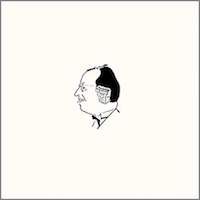
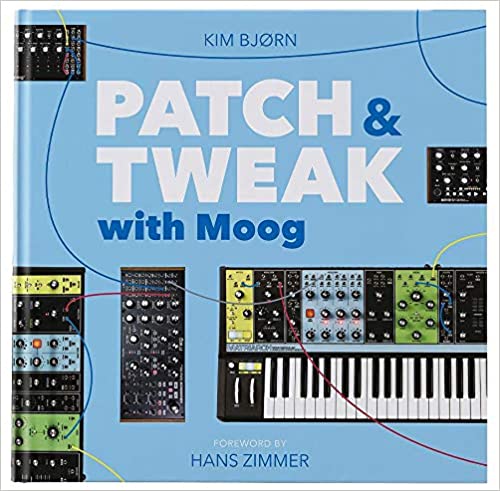






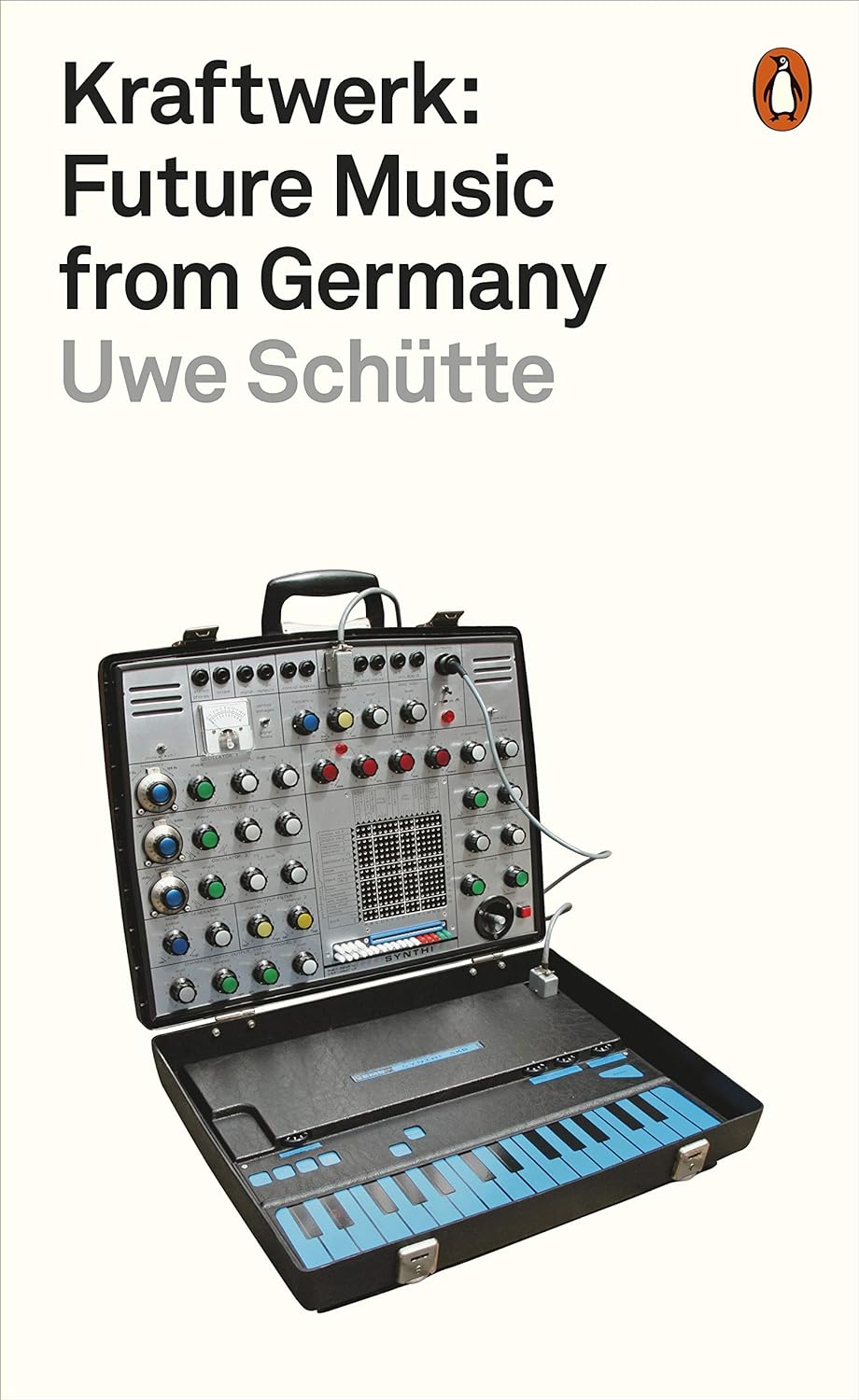
© Matrixsynth - All posts are presented here for informative, historical and educative purposes as applicable within fair use.
MATRIXSYNTH is supported by affiliate links that use cookies to track clickthroughs and sales. See the privacy policy for details.
MATRIXSYNTH - EVERYTHING SYNTH













© Matrixsynth - All posts are presented here for informative, historical and educative purposes as applicable within fair use.
MATRIXSYNTH is supported by affiliate links that use cookies to track clickthroughs and sales. See the privacy policy for details.
MATRIXSYNTH - EVERYTHING SYNTH









